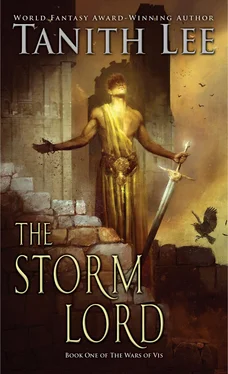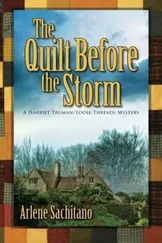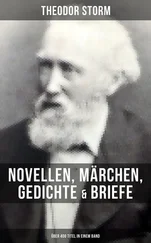All the while, like an ally, the three-month snow fell into the cup of the Plains.
In those first white days, six men left the city. Three rode northeast, to Lan.
They were many days on the Plains. It was hard going in the snow, yet not impossible. The two Lowlanders bore all difficulties stoically. Yannul the Lan, exasperated by their silence, cursed and sang in his saddle. On the whole he did not feel too bad, yet nervous as a boy going to his first woman, riding back home on this ironic errand.
When they crossed into the little land of Elyr, the snow was falling fast. In a matter of miles, they passed five or six dark towers—astrologers’ roosts, each with a single dim light burning high up.
It was not a long passage through Elyr. Near dawn, on the border of Lan, Yannul saw two wolves, their smoking jaws clamped in some edible death. They stared with red eyes and red drooling mouths, and their spit steamed in the snow. Yannul thought unpleasantly of omens.
The King was young, only a child. He held a kalinx kitten on his knee as he listened gravely to what Yannul said, and, at his side, his sister-wife listened also. Yet it was to the King’s advisors that Yannul spoke in actuality as they stood behind the bone chair, toying with pieces of quartz.
When he was done, however, they waited on the boy to speak first.
“You are a Lan,” the King said, in his high boy’s voice, “yet you’ll fight for the Lowlanders. Why is this?”
“The man who sent me, my King, has inspired me to fight for him.”
“How? By promise of reward?”
Yannul smiled wryly, seeing the child was wise beyond his years.
“No, my King. His cause is just, as I’ve explained to you. Also he was a friend.”
“Was?”
“Now he’s a king, as you are. It makes it harder to be close to those around you.”
The boy nodded. Clearly, this much he had already learned. Then, in a controlled but eager tone, he asked: “And this other land—tell us, Yannul, about that place.”
Later, the councilors went away to discuss what should be their policy, and the boy talked seriously to Yannul, while the little girl Queen smiled serenely. His heart burst with absurd pride in them. When he was an old man, or even if he did not live to be one, this pair, full grown, would rule well in Lan.
“You must understand, Yannul,” the King said to him, “that if I were older, I would lead my people to fight for the Lowland King. But I know what they’ll say. They will say that not only Dorthar, but Zakoris and Alisaar hate the Lowlanders, and will also attack them; that Dorthar herself is our neighbor, separated from us only by a little stretch of water. She would turn to us and destroy us, and we have no army.”
“The Lowlanders have no army, but they’re making themselves one. They’ve had to.”
“Yes,” the King said. His eyes shone. “Many men will go from Lan to fight with them. I heard two or three on the stairs talking about it. Amrek isn’t loved here. The Queen thinks he’s a demon.”
The serene girl lowered her lids and giggled.
The policy was to be as the King had said, yet not harshly put. As to the passage of other-land ships along the western flank of Lan, no harm would be offered them. It was intimated, if not spoken, that men who rode to the Plains would go unabused. At supper in the hall, four young nobles came to Yannul and talked with him at length, with bright fierce eyes, of justice and struggle—at which the councilors never turned a hair. Questions were also asked of the Plains men who had ridden with him. Until now there had been a sort of restraint; yet the Lowlanders seemed strange and silent to the people of Lan. They did not question them overlong.
Once, in the indigo hills, Yannul and his brothers had boasted that they would eat at the King’s table. The memory smote him that day. Ringed by familiar things, he yearned to ride deeper into his country and be lost there for a while. But there was no time.
Three men rode to Xarabiss in the snow, to Xarar, where, eleven years before, a hot spring had erupted out of the earth. A new palace had been built to encompass the spring—a winter house where the king and his wives might warm themselves in the cold.
Thann Rashek, whose name in certain circles was still Thann the Fox, had been dozing by the ornate hearth, while two pretty girls played and sang eight-stringed melodies of Tyrai. He was an old man who liked beautiful things about him, professed himself indolent and appeared deceptively docile. When the man leaned to his ear and whispered his news, Thann Rashek’s eyes expanded, and he began to display symptoms of unnerving wakefulness.
The three cloaked figures entered the room and bowed simultaneously, like puppets.
“Lowlanders. How interesting,” Rashek remarked.
“We carry a letter from our King,” one of the men said.
Thann Rashek’s steward intercepted the paper and brought it to him. The wax bore no imprint. Rashek broke the seal and read. Presently he looked up.
“Your King has signed himself Raldnor Am Anackire. Does he claim to be the offspring of the Lady of Snakes?”
“It is a method by which all of us now make ourselves known. Our land has no name—therefore we claim our descent from Her.”
Rashek smiled.
“An elegant fancy. Poetic, yet apt.” His voice did not alter. “Does your King imagine I can defy Dorthar on his behalf? With my weak, my idle land?”
He had sent a similar message to Amrek regarding the Plains city: “Alas, my troops are indifferent: pleasure lovers and braggarts. They would not survive the snows.”
Amrek’s answer had been swift.
“Your open unhelpfulness angers us. We have not forgotten your previous words concerning the scouring of the Lowland filth out of Dorthar, neither your persistent trading in Lowland goods long after our edict forbade it. You will set your house in order, my lord, before the spring.”
The Lowland messenger seemed to read Thann Rashek’s mind. Perhaps this was even possible, for they read each other’s, did they not?
“You may be forced at last to engage in war with Dorthar, lord king.”
“So I may. But not before I’m forced, I think.”
“Then you will march against the Plains?”
“I?” Rashek smiled. “I was never a warlord, sir. And my land is a courtesan, willing only for luxury and love.”
“After the thaw, lord king,” the messenger said, “we ourselves move against Dorthar, and our way lies across Xarabiss.”
“I deny access to none. We are a hospitable and friendly people. No doubt you’ll find generosity here, particularly from our liberal women.”
The messenger bowed; so much had been implicit in the nonchalant words.
“One thing,” Thann Rashek said. “I’ve heard your King is the man from Sar—the lover of my granddaughter Astaris. Val Mala’s men had killed him, I thought.”
“He is the man, Lord Rashek. He did not die in Koramvis.”
“That’s very wry,” the Xarabian said. “Perhaps he will avenge, then, your King, the red-haired woman Amrek destroyed.”
But the Lowlander made him no answer.
He thought of Astaris when they were gone. She had been, of all beautiful things, the best. A strange, rare woman. And beyond the high windows the snow fell into the mouths of icy fountains, and he felt that coldness creep in his old man’s bones.
Before the third month of the snow had ended, the ruined city was full once again of Vis.
They came in chariots, wagons, carts, on zeebas and on foot, not for purposes of occupation, but out of fierce new loyalties to a barely known cause and a lesser-known people. Easygoing Lans, handsome Xarabians. Elyrians who proved withdrawn and mainly silent. It was a fever running in the lands to north and east. Even soldiers came—mercenaries from Xarar and Tyrai with their officers, carefully defacing their Xarabian insignia around the fires at night to save Thann Rashek’s name. Even the slurred accent of Corhl was heard about the streets, and in the encampment outside the walls, two itinerant Alisaarians who had found nothing to love at home. Also, for some reason more slowly, those of mixed blood returned, those men with light eyes and dark hair, and the blonde-haired, black-eyed women. They were perhaps more lonely then, seeing that King, who was like them, and yet had become so different. But the old suppressed pride, the frustrated angers welled in them. They were as ready for the struggle as any paid fighter of pure Xarabian blood or stargazing Elyrian.
Читать дальше












